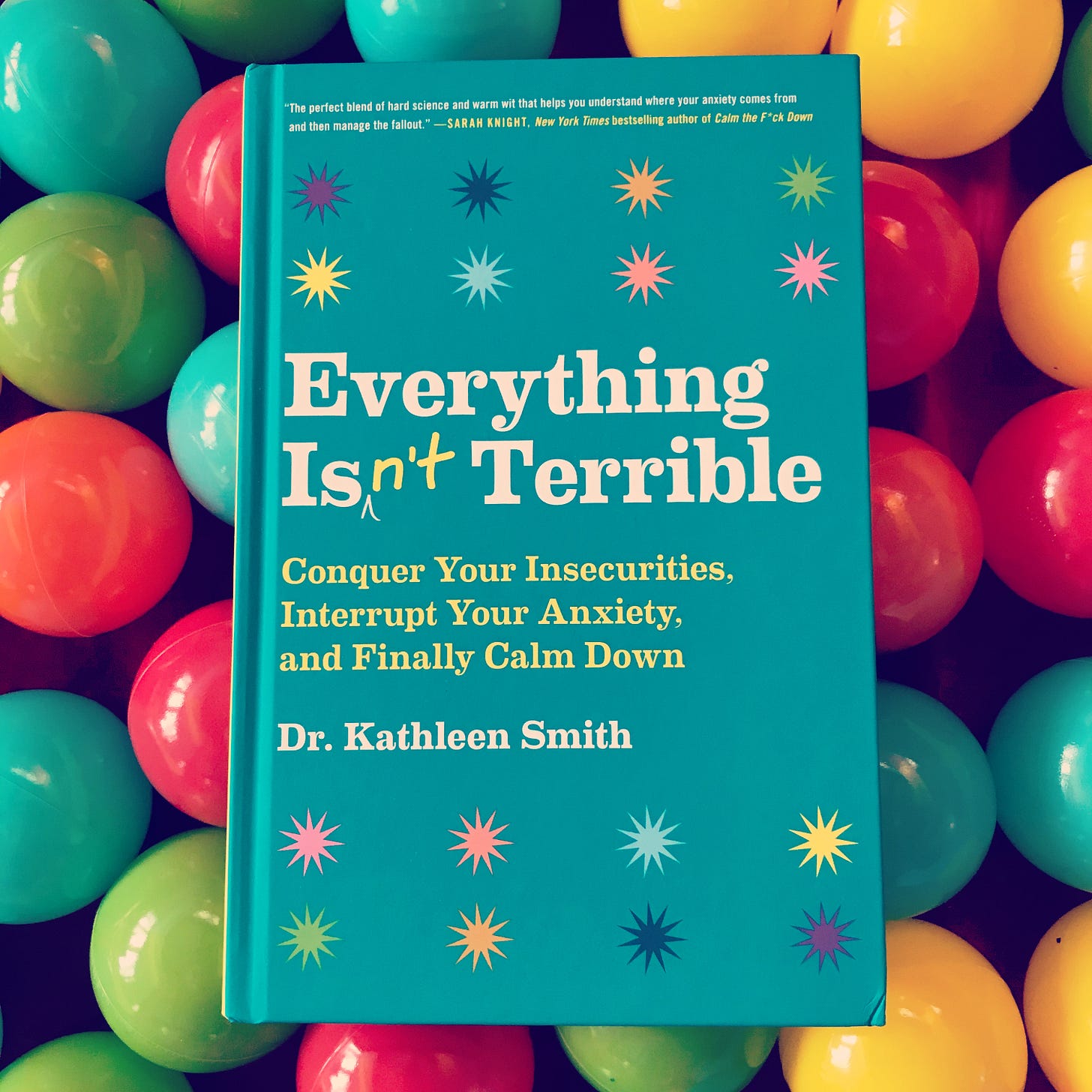It's Time to Turn Off Your Anxious Autopilot
In one of my favorite Seinfeld episodes, George decides to do the opposite of everything he’s ever done. He stops ordering tuna on toast at the coffee shop. He goes up to a woman and tells her he’s unemployed and lives with his parents. Hilariously, he finds that this seems to work, at least for a while. “Yes, I will do the opposite!” he declares.

When I’m anxious, I think of my automatic functioning as my tuna on toast. It’s comfortable, it’s safe, and it works fairly well most of the time. It’s what my anxiety would have me do to keep my relationships stable, and to get the most praise and approval from others. The problem is, I often don’t like the taste it leaves in my mouth.
When our anxiety goes up, our emotions tend to run the show. We don’t invest a lot of thinking into our actions. This is because thinking takes time, and time requires sitting with some discomfort while we problem solve. It’s much easier to simply let our anxious autopilot choose a response.
How do you know when you’re functioning based on emotion and not intellect? To start, your actions are usually focused on calming things down instead of trying to be the kind of person you want to be. And how do we calm things down? By putting pressure on others.
When we function based on emotion, we usually shift our focus to our relationships.
Relationship focus looks like:
Feeling more sensitive to others’ anxiety.
Expecting other people to calm you down.
Seeking approval or attention from others.
Asking others to change so you can calm down.
Distancing from others.
Turning someone into a project.
Complaining or venting to another person.
These are all very human behaviors, and often they can calm a situation down pretty quickly. But sometimes our efforts to manage others lead to more anxiety, and more conflict. And they certainly don’t increase our own capacity to calm down. Putting the focus back on yourself can be uncomfortable, but it is often more effective in calming you down.
What does it look like to function based on thinking?*
Having tough conversations without becoming overly reactive.
Refraining from overfunctioning for others.
Enjoying intimate relationships, but also accomplishing your goals.
Not being overly sensitive to praise or criticism.
Being able to sit with some anxiety, instead of immediately trying to squash it.
Being able to evaluate yourself with a fair amount of objectivity.
When I first began thinking about these ideas, I interpreted emotional functioning as bad, and intellectual functioning as good. It took me a while to realize that we wouldn’t have both modes of operating if they didn’t serve some evolutionary purpose. Leaning on relationships has helped us survive as a species, but so has being able to think for ourselves. It’s not a matter of good or bad—it’s about being able to CHOOSE how you respond to anxiety.
I cannot begin to describe how wonderful it feels to reclaim a little bit of “self” back when you’re navigating an anxious situation. Sure, it might feel gross or hard in the moment. But over time, challenges and relationships feel more navigable. You begin to feel less allergic to other people’s anxiety, and less responsible for them.
So what’s your tuna on toast? Is it avoiding your family because they annoy the hell out of you? Is it chasing after praise to feel good about yourself? Is it overfunctioning for everyone when you feel stressed? When you become familiar with your automatic functioning, you begin to see opportunities to maybe do the opposite. Or to at least try something that feels a little bit closer to your better self.
Here are some questions you can ask yourself:
When are the automatic ways I try to manage anxiety?
How do I put others in charge of managing my anxiety?
How would I like to function when I feel distressed?
What are upcoming opportunities for me to take myself off autopilot, and try to function based on intellect?
News from Kathleen
I wrote an ENTIRE BOOK about these ideas, so if you haven't gotten your copy of Everything Isn't Terrible yet, you can buy it from Amazon, Barnes and Noble, Indiebound, Target, or anywhere you buy books! But I encourage you to support your local indie bookstore.

Listen to my conversation with Ellie Knaus on the Atomic Moms podcast. We talked about overfunctioning, the anxiety that comes with progress, and my own experiences with new mom anxiety.
Connect With Me
If you're new to the newsletter, you can check out my website for past newsletters about anxiety and relationships. You can follow me on Twitter, Facebook, or Instagram, or email me if you have questions about the book, want me to speak to your group, or want to learn more about my therapy practice in Washington, DC. You can also visit the Bowen Center’s website to learn more about Bowen theory, as well their conferences and training programs.
*This list comes from a description in the book Family Evaluation, by Dr. Michael Kerr and Dr. Murray Bowen.



